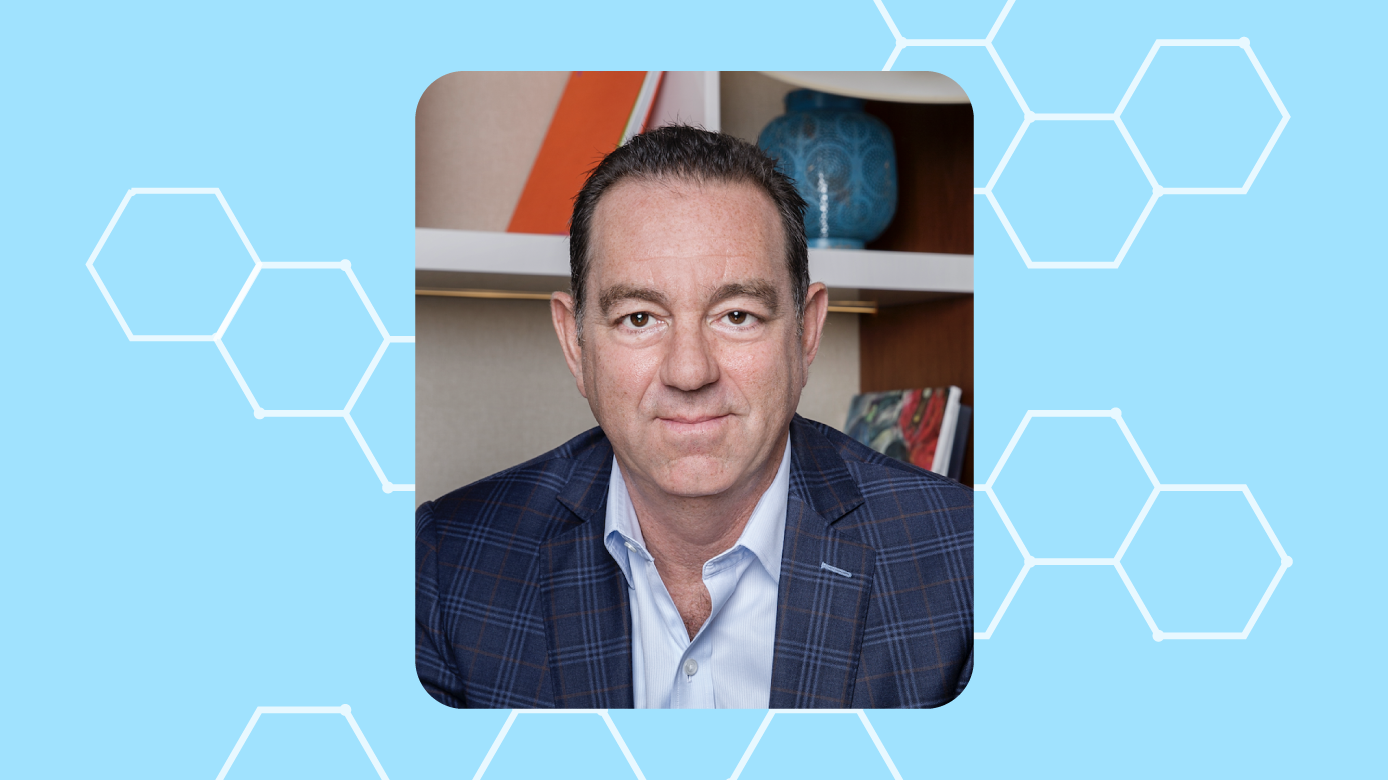Our industry continues working to build a more resilient, affordable and equitable health care system. As part of Mental Health Awareness Month, I recently had the opportunity to connect with PhRMA board member and Sage Therapeutics CEO Barry Greene about how we can improve mental health.
Stephen Ubl (SU): We've seen mental health continue to worsen since the beginning of COVID-19, with a 93% increase in the number of people participating in anxiety screenings and a 62% increase in depression screenings. As werecognize Mental Health Awareness Month, how we can fight stigma in mental health now and in the future?
Barry Greene (BG): Mental health is perhaps the most neglected of all health conditions and many people do not receive the treatment and care they deserve, or the outcomes they seek. This burden was created by the stigma around mental illness as well as the decades-long lack of therapeutic innovation in depression and other mood disorders. And it’s only been exacerbated by COVID-19. What was already an overburdened and underfunded system of care now presents itself with an unprecedented strain, with people suffering approximately four-times the previous pre-pandemic rate of depression symptoms in the U.S. alone.
I believe there are many things we can do to fight the stigma. First, we need to do more to acknowledge that brain health matters; brain health disorders like depression are real illnesses with biologic underpinning and can be treated if diagnosed properly. Unless we change from the “it’s my fault – it’s who I am” way of thinking to “the brain is an organ, and these are treatable diseases,” the stigma won’t change. We also need to educate the next generation of health care providers that patients are not well served and deserve better. They need to be inspired by the potential of breakthrough treatments in brain health. Innovation in this space is needed and must be approached with the same urgency and enthusiasm as other therapeutic areas. For example, it’s time to reimagine the treatment of depression – how patients receive treatment and how providers manage it. Mental health disorders need to be taken seriously and treated with urgency. Mental health should be integrated with physical health and managed with a mindset that puts people first. Bottom-line, mental health is health.
SU: One area where sadly that stigma still exists is in the postpartum space, yet many women face symptoms like depression and anxiety during or after pregnancy. Given it is Maternal Mental Health Awareness Week, can you touch on how Sage Therapeutics is working to improve treatments for these women?
BG: At Sage we are committed to developing meaningful solutions, including therapeutic options, for women who experience postpartum depression or PPD. It’s important to understand that PPD is a serious depressive disorder often with elevated anxiety that can impair a mother’s overall function, including the ability to fulfill personal responsibilities and engage in daily activities, and it may even impact child development and family relationships that can last generations. In the U.S., an estimated one in eight moms report experiencing symptoms of PPD. While it is one of the most common medical complications during and after pregnancy, approximately half of PPD cases go undiagnosed.
Untreated PPD can lead to persistent depressive symptoms, prolonged maternal morbidity and mortality. Unresolved depressive symptoms may lead to harming the baby and can even lead to suicide, which is a leading cause of pregnancy-related mortality. Patients and providers face a variety of barriers that limit access to adequate screening, diagnosis and treatment of PPD.
One way we’re helping new mothers address this is through our support of maternal mental wellness. It’s common for moms to create a birth plan, but few have a plan for the critical 12 weeks after baby arrives, often called the “Fourth Trimester.” That’s why we developed “Check on Mom,” a program that offers tools and resources to help health care providers and mom feel surrounded by the support she needs during this critical time. We help her prepare for what happens after the baby is born using the Maternal Mental Wellness Plan, an organized way to make sure she takes as good care of herself as her baby and to build a support system of friends or family who are committed to supporting her mental well-being. More information can be found on mycheckonmom.com. We are also partnering with patient advocacy groups to educate health care professionals that pre-screening for risks of depression are critical to moms and babies.
SU: What are some barriers patients face when it comes to mental health treatments and how are you thinking about ways to address these barriers?
BG: People living with depression have not been well-served. Largely stigmatized, depression is the dark shadow of human illness. Current treatments may not be working well enough for too many and there is a need to bring about new innovation.
It’s important to consider how diseases such as cancer and diabetes are acknowledged to have both environmental and biological risk factors. The same is true for mental health but when it is discussed, the focus is usually on social determinants. The brain is an organ, and therapeutic innovation must be prioritized as an essential component to tackling the mental health crisis. It’s really the only approach that’s scalable.
The current therapeutic approach to major depressive disorder, or MDD, which has been unchanged for decades, results in a “trial and error” pattern. Antidepressants often have stigmatizing side effects and require chronic treatment. Studies have shown that delaying effective treatment in patients with MDD may negatively impact the degree of symptom reduction, the likelihood of resolving symptoms completely and overall clinical outcomes. All of this underscores the urgent need for change. We need medicines that work much faster, last longer and are well tolerated.
Access to medicines can also be challenging and there are real-life consequences of delaying access to care for patients with mental illness. We need different approaches. For example, value-based arrangements, or VBAs, are just one way industry can work together with payors – across the health care continuum – to ensure broad and affordable access to new treatment options.
Patients deserve better. We can do better. The riskiest thing we can do for people is to maintain the status quo. We believe there is a significant opportunity for new treatments for MDD, and we are actively working to pursue this and provide potential new options for patients.
You can stay up to date with the work the biopharmaceutical industry is doing to build a better health care system here.



